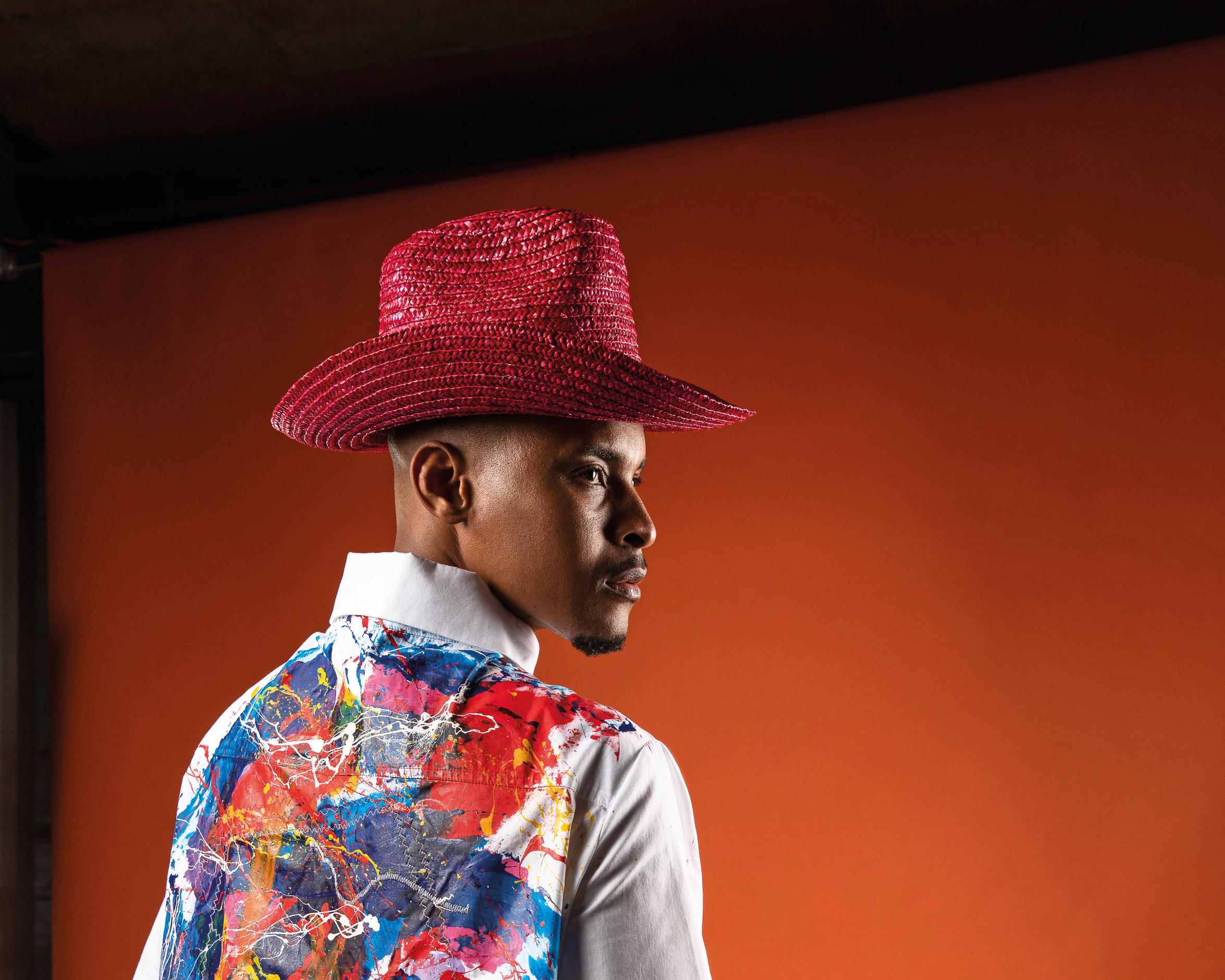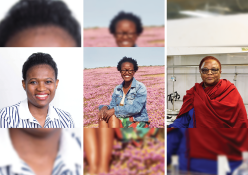Seven years ago, Thabiso Makhubela had R26 in his bank account. This is the story of his rise.
It’s a crisp Sunday in Cape Town when we connect with Thabiso Makhubela. He is relaxed and ready to chat. ‘I’m sorry you’ve got to work on a Sunday,’ he graciously offers. ‘But I often find I’m in a better headspace to talk than I would be in the madness of the week.’ His week is indeed madness. His day starts at 4 am, and he’s on the Expresso set by 5 am. There he wakes the nation up with his slick delivery, endearing personality and beatific smile. Depending on the workload, a workday would end around 6 or 7 pm, later if he has booked hosting or emceeing gigs, or has an industry event to attend. ‘My schedule is hectic, but it is a privilege,’ he says. ‘This life has been my dream. It was only a short time ago that I had nothing.’
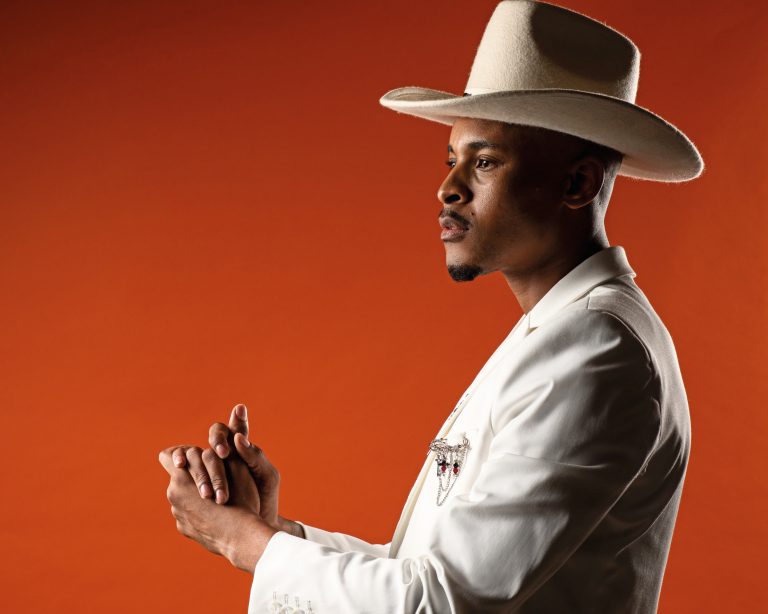
What led to that situation and can you give me some more details about it?
Well, I had a pretty comfortable life as an account manager and strategist at a really good agency. But I decided to start my own agency in 2015, which was in direct competition with big agencies. And I did this without the credibility of previously running a business. I employed around seven people and it went great for a couple of years. We were making really good money, but then suddenly everything fell apart in 2017. I went from making great amounts of money every month to having nothing in almost a month. I had R26 in my bank account that I couldn’t withdraw. I remember that experience so vividly. I didn’t have money for bread. The embarrassment of having to go to my dad and ask for money. I sunk into somewhat of a depression. It was hard. So hard. I felt like a complete failure.
How did you get through that season of your life?
I had to find it in me to persevere. My mom always asks me: ‘But are you going to die?’ when I’m confronted with challenging situations in my life, or I have tough choices to make or risks to take. The consequences are never life and death, and her point is that if I fail, I can recover and go again.
How did things turn around for you?
Well, soon after my business folded, I entered the Top Billing Presenter Search. It had always been my dream to be in media, specifically television. I worked at YFM, preparing for a TV moment. I got that moment, and even then I was fearful of going into it until a friend reminded me that this was always my dream. I often think about the enormity of what has happened in my life. I dreamt about it being exactly the way it is now. I am living a lifelong dream.
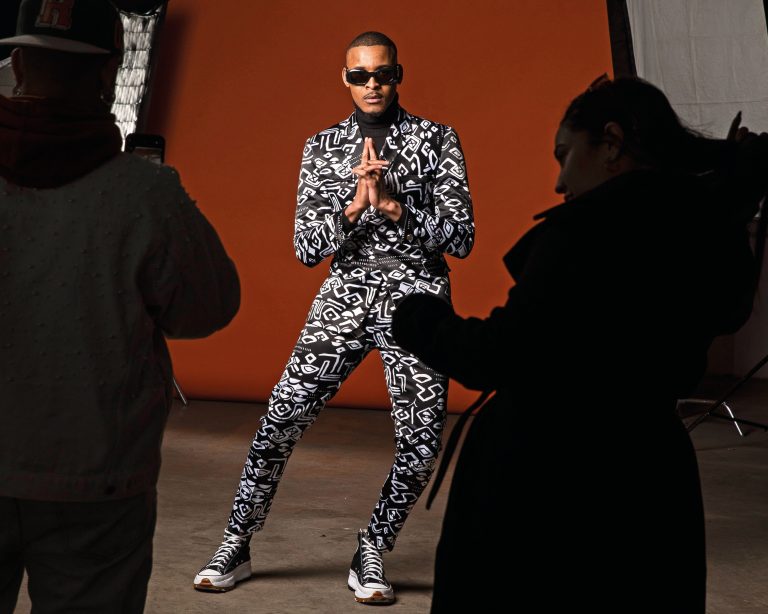
When you think about your childhood, what would you reflect on as being the pillars that defined the man you’ve become today?
There are four. Optimism is the first. I grew up in a small village in Hammanskraal. The only connection to the world I operate in now was TV, specifically watching Generations. I distinctly remember watching them sit down for breakfast, and how lovely their orange juice looked [laughs]. But that gave me a reference point for success. I saw it, and I was able to go after it. The second pillar is perseverance. Any person growing up in a small town will face scepticism about wanting to enter a profession that is outside of the mainstream – doctor, lawyer, teacher. You’re constantly having to fight to legitimise your dream. As a creative-minded kid, this was my experience too, and I needed to learn to persevere through the doubt. Despite the doubters, I remember experiencing this crazy force that made it feel like my dreams were inevitable. The third is support. I held on tightly to what support I could find. There were key people throughout my childhood who offered that, showed love and held the space for me to be more confident, which is the final pillar. You can’t buy confidence, and nobody can really teach you to be confident. But people around you can create the environment that nurtures that, and I was very blessed to have such people in my life.
Was there anyone in particular whose impact was particularly critical in shaping you?
My father. He has been such a light, a force. In many ways, he believed in what he couldn’t see and supported it wholeheartedly. Every single thing I’ve wanted to do, he’s never questioned. To see the opportunities he’s been able to lead me into, with limited resources, has been incredible.
Some people can be what they can’t see. Others have to have reference points they relate to, to be able to rise in this way. Where do you fall on the spectrum?
Being exposed at a distance, for example, to the Morokas in Generations, to the possibility of an alternative world sparked in me that I could become what I couldn’t see. But the spark is only one thing, I broadened it. I had no access to resources. My village school didn’t teach English until much later in my junior schooling career, so I taught myself by watching and imitating what I heard on TV. And once you see the spark, there’s something that compels you to walk in the direction you’re meant to go.
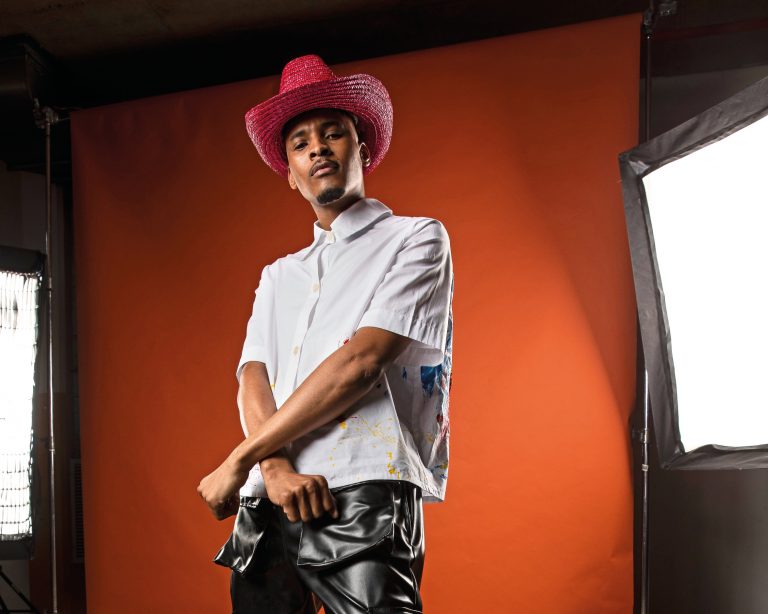
In your career pre-tv, Brand communication was your first love. Why the interest and what about how you’re wired makes this a good fit for you?
Yes, it’s always been my first love. Without knowing it, I have grown up with an understanding of, and appreciation for brands, and what it means to build and communicate a brand. When I started my agency, The Drawing Board, in 2015, I held firm that my job was to help brands make sense to people. My nature was always to take the brand’s stories and make people believe in them. This was something I did, without really knowing it. In Grade 7, I sold sweets, and I’d run full-on advertising campaigns! [Laughs] Flyers all over the place,game shows to win the week’s supply of sweets, which were sold illegally from my backpack. I had the natural ability to take products and stories and package them in ways others related to.
Where did this entrepreneurial drive, or mindset, come from?
When I sold those sweets, I knew there was something there. Later, in school, I’d drive initiatives, like drama classes. Things that didn’t exist, I established. In hindsight, I could always spot problems and solve them, which is essentially what successful entrepreneurs do. I also really struggled with falling in line. Even today, I like to do things with a Thabiso flair. I could have built a really good life at the agency I was at, but I was bored of the template we presented to clients, so I started my own business, which I envisioned would offer a far more flexible and innovative approach to the work I’d done for them while at the agency. So, I’ve always had this in me.
In late April you posted a caption on your Instagram that read: ‘This is my “trust-the-process” season. My feel-the-fear and do it anyway. It’s my surrender-with confidence season.” I wanted to get more insight into this because I feel like you are in a place that will resonate with many people.
This is personal to me. All across my journey, I’ve felt the fear of things I stepped into being unfamiliar and new. But I went in, do or die. And I just knew I wasn’t going to die in the figurative sense. But I’ve spent the better part of the last three and a half years living in fear. I was acutely aware that the realisation of my dream had saved me from the crushing blow that losing my business was. But now living that dream has made me complacent and fuelled the fear of rebuilding where I’ve needed to rebuild. My experience has resulted in me being overly cautious of things that are unfamiliar to me or dreaming too big. I’m scared of losing everything. But after some sessions with my therapist, I’m feeling so inspired to go back to the Thabiso that I’ve always been – a dreamer. I’ve stopped dreaming, and that breaks me. I’m going back to myself.
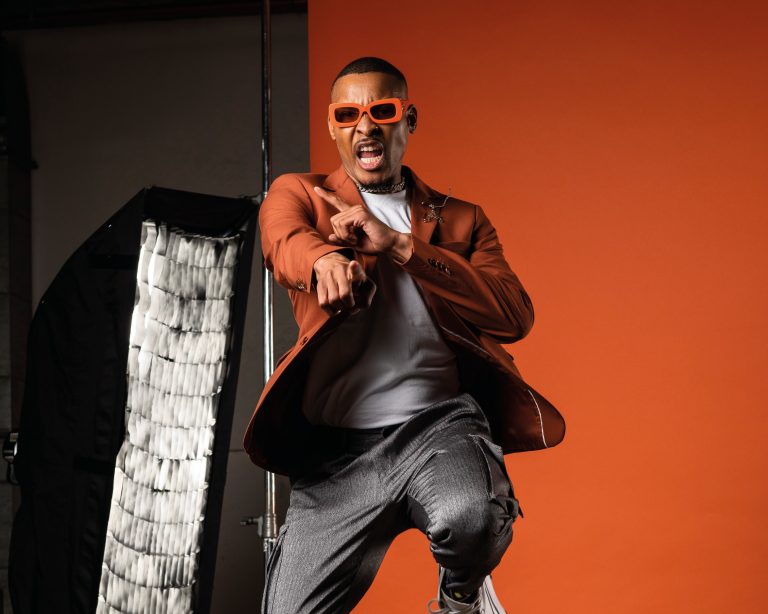
It would be remiss not to talk about style, which has become a defining dimension of your brand. Who were your early style influences?
My dad and uncles. They were always so well dressed. They gave me a consciousness of being stylish. I felt stylish when I rocked certain looks, not necessarily certain brands.
In many ways, luxury brands have become seen as the pinnacle of style. We see guys going for heavily branded luxury pieces because they think it makes them stylish. I feel like we’ve moved away from stylish being the ability to construct a great outfit, irrespective of the brand the pieces in that outfit are. That makes me sad.
It makes me sad too. Luxury fashion brands have come to occupy a big space in our minds in this regard. Social media and new-age media have contributed to that. But that has distorted the picture somewhat. This isn’t the first time in the history of fashion this has happened though. There was a big movement in the ’70s, where people were measured by how many luxury brands they were wearing. But I think true personal, classic style always has a place and can shine through all of the noise. Those who do that, stand out. I have an appreciation for luxury fashion, but I wonder what the lifespan of this particular brand of cool is. If everyone looks the same, like one long Instagram timeline, how interesting is that and how long can that sustain? I’m a big advocate for wearing whatever feels right. What allows me to express myself best is when I don’t feel like I have to pull off the template.
Words by Ryan Vrede
Photography: Gareth Van Nelson/HMImages.co.za



